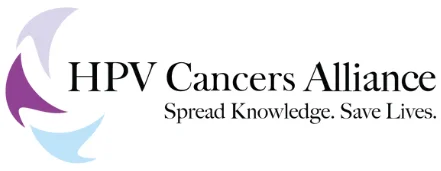Self Advocacy
"I want to help put a dent in the stigma around anal cancer," says actress and advocate Marcia Cross in the Spring 2024 issue of ACG Magazine. In this compelling feature, Cross shares her personal journey with HPV-related anal cancer and her mission to raise awareness within the gastroenterology community. Her story underscores the importance of open conversations and proactive screening to improve patient outcomes.
What is self-advocacy?
Self-advocacy is speaking up for yourself to ensure you get the best care, asking questions about your healthcare options, and making sure your needs and concerns are met by your healthcare provider.

How To Be Your Own Best Advocate - A message from our founder:
"Sometimes, you have to step up and ask for what you need regardless of what others think or say. That’s what self-advocacy is all about.
I have no problem doing that, even when the topic is something that is usually whispered about: HPV and cancer. Everyone has the right to have the best access to information about the risks, how to prevent the infection and associated cancers, and the treatments available.
I realize it can be challenging to advocate for your own healthcare. After all, the healthcare maze can be confusing and frustrating to navigate. It can be difficult to get your doctor’s attention. Here are my tips on how to advocate for yourself:
- Believe in yourself: You deserve quality care and clear answers. Doctors aren't always right, so trust your instincts and seek a second or third opinion if needed.
- Identify what you want: Before seeking better healthcare, identify your needs. Are you asking about HPV transmission, the vaccine, or protecting your children from HPV?
- Know your rights: Everyone deserves equal healthcare. If you're unsure of your rights, ask a trusted doctor, nurse, or advisor for help.
- Educate yourself: Research HPV and its related cancers using reputable sources like medical organizations, nonprofits, and experts. Review multiple trusted websites for accurate information.
- Create a support team: Talk to friends, family, healthcare professionals, and support groups for information and support on HPV and related cancers.
- Plan your strategy: Use your information and support wisely. Prepare questions for your doctor, bring a supporter to appointments, discuss concerns with your team, and identify helpful people or organizations to assist with your plan.
- Speak clearly and with authority: Be brief and clear when speaking your mind. Practice with a supporter, and use notes or bullet points to stay organized.
- Be confident and persistent: My motto: Don't give up! Stay focused, follow through, and reach out to supporters if you lose confidence." - Lillian Kreppel
Overcoming Shame
We know that not everyone's health needs are met with compassion and understanding. Stigma, shame, and fear can affect how people seek care. Overcoming shame means building the tools to move through these barriers, honor your own needs, and find the care you deserve.
Here are some ways to begin:
- Create a safe space: Surround yourself with people and environments where you feel respected, heard, and free of judgment.
- Ask yourself, "How do I want to feel": Many people want to live free from shame, anxiety, and silence. Identifying that goal is a powerful first step.
- Focus on what you need - not just your diagnosis: When you put words to your experience, you lighten the weight of carrying it alone. Silence doesn’t erase the reality, it only makes the burden heavier. You deserve care and compassion, not dismissal.
Trauma & Medical Care
Getting care, especially sexual health and reproductive healthcare, can sometimes trigger fear, anxiety, or memories of trauma. Everyone heals at their own pace, and there’s no “right” way to move forward. Naming these fears can be a powerful first step, and finding support (whether through trusted providers, loved ones, or safe communities) can make the process less overwhelming.
YOU ARE NOT ALONE. Click the resources below for guidance & support:
- National Sexual Assault Hotline: 1-800-656-4673
- Pandora's Project
- Books - Resources for Healing & Resilience
- Nationale Sexual Violence Resource Center
- Bad B*tches Have Bad Days Too (Mental Health Support)
- American Foundation for Suicide Prevention

